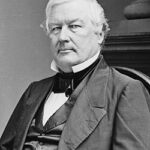President Millard Fillmore made a transformative decision in 1850 that would shape the intellectual foundation of American presidencies. His establishment of the first permanent White House Library represented a commitment to presidential scholarship and informed governance.
The Vision Behind the White House Library
Fillmore recognized that effective leadership required access to knowledge and historical precedent. He convinced Congress to appropriate $2,000 for book purchases, a significant sum at the time. 📚 This library would serve as a repository of legal texts, historical documents, and reference materials essential for presidential decision-making.
Building the Collection
The initial collection focused on American history, constitutional law, and international relations. Fillmore personally selected many volumes, emphasizing works that would aid future presidents in understanding their roles and responsibilities. The library included biographical works of previous presidents, legal commentaries, and diplomatic correspondence.
Setting Presidential Precedent
This decision established a tradition of intellectual engagement within the executive branch. 📊 The White House Library became a symbol of the presidency’s commitment to informed governance and continuous learning.
Impact:
Fillmore’s White House Library establishment created lasting positive effects that extended far beyond his presidency. This decision fundamentally changed how presidents approached their roles and responsibilities, establishing intellectual rigor as a presidential tradition.
Enhanced Presidential Decision-Making
The library provided immediate access to historical precedents and legal guidance. Future presidents could consult previous administrations’ decisions and learn from both successes and failures. 📊 This resource proved invaluable during constitutional crises and complex policy decisions, enabling more informed and historically grounded leadership.
Institutional Memory and Continuity
The White House Library became a repository of institutional knowledge that transcended individual presidencies. Each administration could build upon previous experiences while maintaining continuity in executive governance. This resource helped preserve important documents and correspondence that might otherwise have been lost.
Educational Legacy and Cultural Impact
📚 The library elevated the intellectual profile of the American presidency on the international stage. It demonstrated that American leaders valued scholarship and learning, countering European perceptions of American anti-intellectualism. This cultural shift influenced public expectations of presidential knowledge and competence.
Long-term Institutional Benefits
The library’s establishment laid groundwork for future expansions of executive resources. It created a model for other government institutions to follow, emphasizing the importance of accessible knowledge in democratic governance. 🌍 This decision influenced libraries and educational institutions worldwide, showcasing American commitment to informed leadership.
